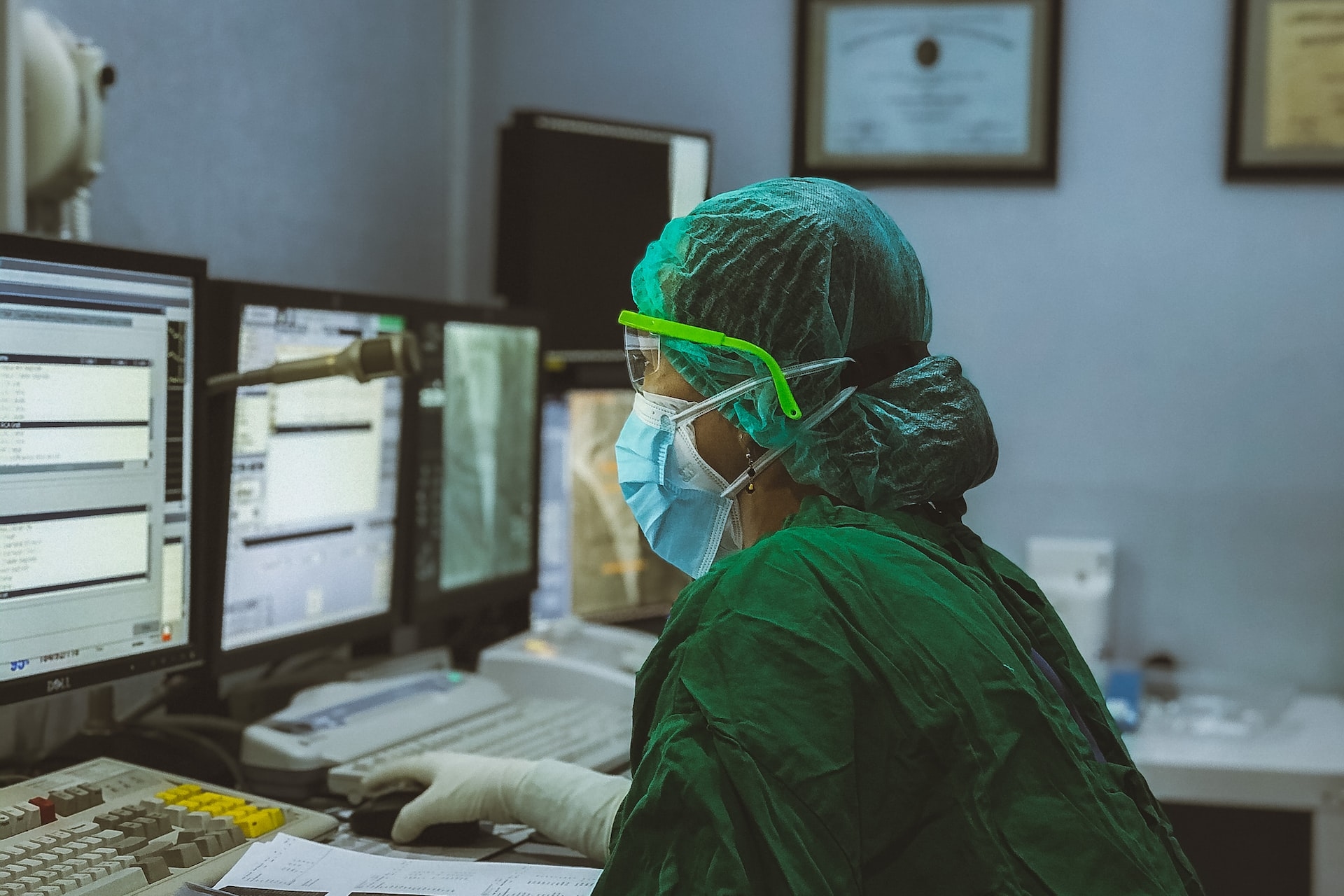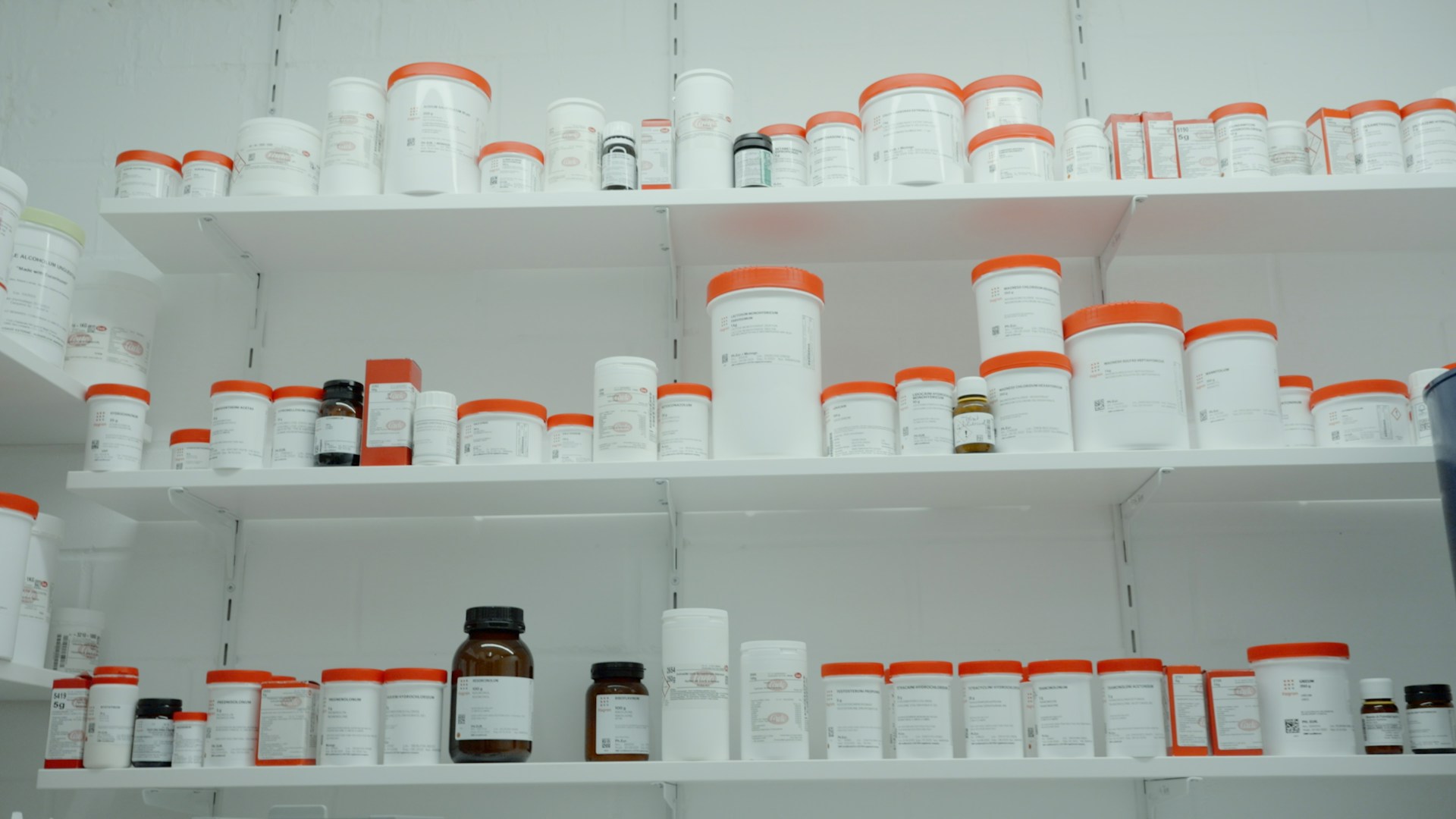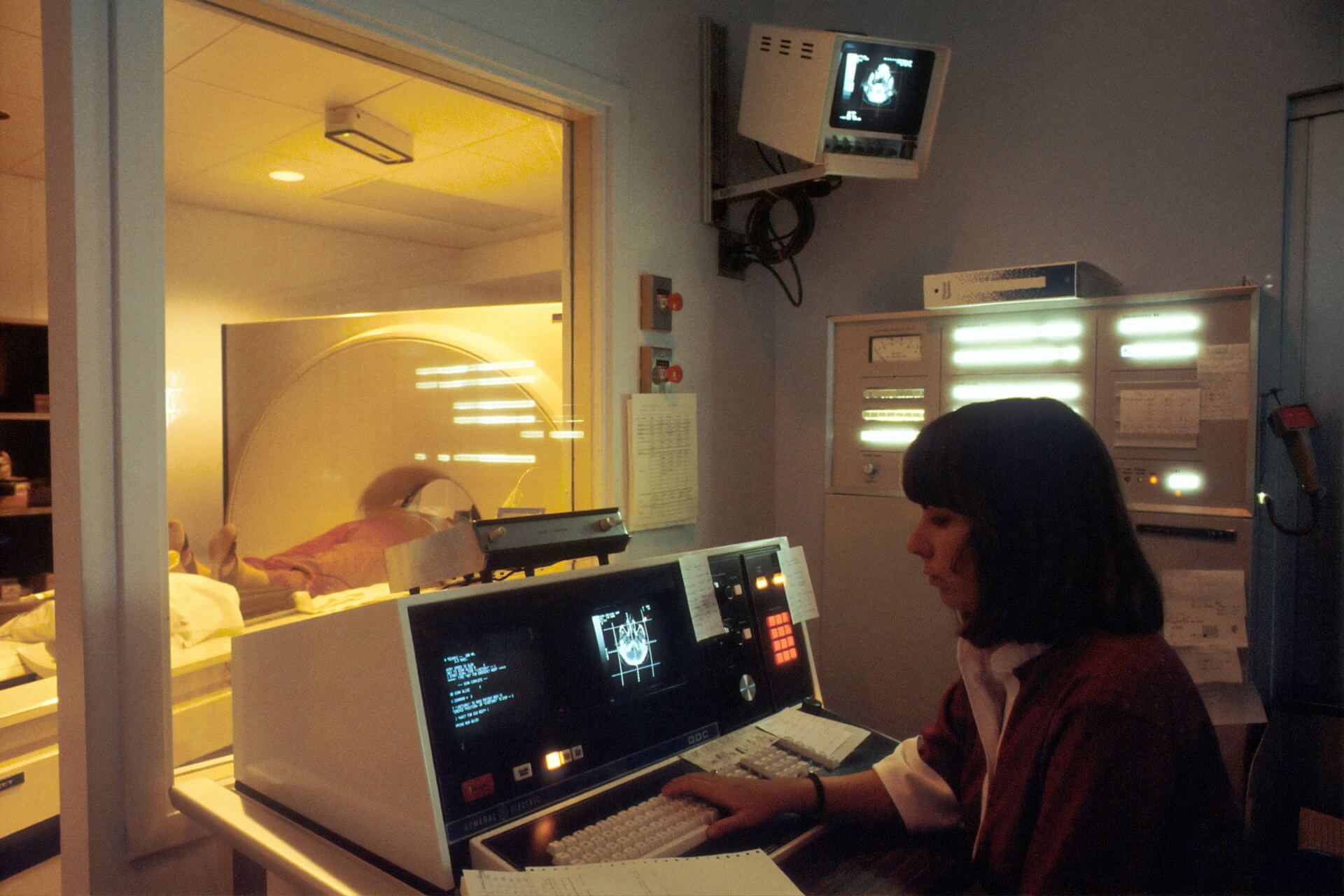
5 Interesting Ways to Use Artificial Intelligence in Healthcare
February 15, 2023 - Ellie Gabel
Revolutionized is reader-supported. When you buy through links on our site, we may earn an affiliate commission. Learn more here.
Have you ever considered the impact of artificial intelligence in healthcare?
Most people today have heard of artificial intelligence, or AI. However, you may not be aware of the rising number of industries and disciplines it’s helping. Healthcare is no different, including diagnostics, inpatient treatment, surgery, manufacturing, drug development, and other areas. Technologies like natural language processing (NLP), machine learning (ML), and deep learning (DL) allow AI to deliver predictions and insights that can save lives.
The market for AI systems in the healthcare industry will be worth $188 billion by 2030. Here are five interesting ways we can benefit from artificial intelligence in healthcare.
1. Enabling More Accurate Diagnoses and Triage
Performing triage is no doctor’s favorite part of the job, but it’s a necessary one. AI can support doctors and specialists – like radiologists, trauma surgeons, and cardiologists – in reviewing medical imagery and patient data. In turn, this helps prioritize the most critical cases and ensures a precise match of each diagnosis to each patient.
Applying AI to drawing diagnoses from medical imagery is a matter of scale. Clinical environments capture and process thousands of pieces of healthcare data annually. Estimates report that 30% of all data generated every year is from healthcare.
AI brings incredible speed and accuracy to the task of finding patterns in all the digital noise. Some use cases have seen AI applied to emergency rooms handling 70,000 or more patients each year. Artificial intelligence in healthcare can unburden doctors in overcrowded and understaffed facilities.
2. Facilitating Faster and More Effective Drug Development
Neural networks are some of the most powerful types of machine learning currently in use. They more closely mimic the workings of the human brain than other forms of technology comprising artificial intelligence. The human brain contains neurons that “talk” to each other in order to solve problems. Neural networks are similar – they use layers of artificial neurons to spread the computational load and come to logical conclusions.
The process of developing new medications can require a lot of trial and error. Neural networks are turning can help by studying thousands of drug candidates at once. The AI uses a simulation to test their effectiveness far faster than conventional methods.
The University of Toronto and IBM demonstrated the possibilities in 2015 when, during the West African Ebola outbreak, researchers needed to rapidly test multiple compounds for their ability to act on emergent virus strains. With the average cost of bringing a new drug to market pegged at $314 million to $2.8 billion in 2020, this is an important, timely development in artificial intelligence for healthcare.
3. Delivering Advance Warning of Disease
There are still many diseases that can be difficult to detect before they become too severe to treat. Kidney disease is just one of these, representing 11% of all patient deaths in hospital settings. Early prediction is of paramount importance in maximizing patient longevity and cutting both the length and the cost of kidney disease treatments – mostly consisting of dialysis.
Artificial intelligence is already making a significant difference in the patient experience and their likely survival. The Department of Veterans Affairs in the U.S. uses DeepMind – Google’s AI platform – to predict cases of acute kidney injury (AKI) up to two days faster than was previously possible.
The AI tool has been 90% accurate in finding AKI cases. Explorations are underway to find practical ways to bring this technology to the individual community clinics veterans are likely to visit to receive care.
4. Making Patient Care Predictive
Electronic health records (EHRs) have become the backbone of the modern healthcare industry. Developed countries have been busy drawing up new laws concerning privacy and data-handling expectations for privileged healthcare information. Doctor’s offices, drug companies, research clinics, and hospitals are held to higher and higher standards under regulations like GDPR, HIPAA, and CCPA.
Each patient within the healthcare industry generates an estimated 80 megabytes of data per year. What if these troves of data could be used to make predictive healthcare observations without patients or doctors lifting a finger?
That’s the mission behind CloudMedX and similar platforms. EHRs are what’s known as unstructured data – meaning it manifests in a variety of formats, like prescriptions, doctors’ notes, charts, health-device data, and information from other practices – so AI is uniquely suited to combing through it. AI can find patterns and symptoms in the data that even seasoned experts could miss. In turn, these patterns may signify chronic diseases or genetic problems waiting to worsen. Artificial intelligence in healthcare could give patients advance warnings of health complications they may not even know to look for or ask their physician about.
5. Aiding Emergency Responders
The time between a patient calling 911 and the ambulance arriving on the scene is the difference between life and death in many cases. First responders and 911 operators would greatly benefit from some technological assistance during these fraught, high-stakes moments.
Artificial intelligence provides an interesting solution to the problem of identifying the type and seriousness of 911 callers’ ailments and emergencies. For the patient to have the best chance at survival, operators and first responders must have an accurate understanding of the patient’s condition and how much time they have to successfully intervene.
With this in mind, the developers of AI tools like Corti focused on identifying verbal and other cues among patients that give clues about their condition. In tests, Corti demonstrated a 73% success rate in identifying cardiac events over the phone. It did so faster and more accurately than human phone operators. Even secondary clues, like background sounds, get weighed in the AI platform’s analysis. As a result of foresight from AI tools, first responders can be sure they arrive with the necessary tools for a successful medical intervention.
Artificial Intelligence in Healthcare
Arguably the most important change brought by artificial intelligence in healthcare is the decisive step toward healthcare equity. Artificial intelligence supports equity throughout the medical industries because it brings to the table what human clinicians, researchers, and physicians cannot: Medical knowledge free from bias or prejudice. There are significant red flags when it comes to the data used to train AI – an artificial consciousness trained on problematic data will demonstrate problematic judgments – but the potential to do good is immense.
Even developed territories like the U.S. and the U.K. have a problem with healthcare access for marginalized communities. Even once admitted, women and minorities sometimes have their health concerns dismissed by professionals who either don’t understand or don’t prioritize the needs of these individuals. AI could bring a more impartial eye to diagnostics and higher success rates during treatment – especially for conditions we don’t fully understand yet. In the process, humans and AI can, together, make sure nobody gets left behind.
Revolutionized is reader-supported. When you buy through links on our site, we may earn an affiliate commission. Learn more here.
Author
Ellie Gabel
Ellie Gabel is a science writer specializing in astronomy and environmental science and is the Associate Editor of Revolutionized. Ellie's love of science stems from reading Richard Dawkins books and her favorite science magazines as a child, where she fell in love with the experiments included in each edition.







